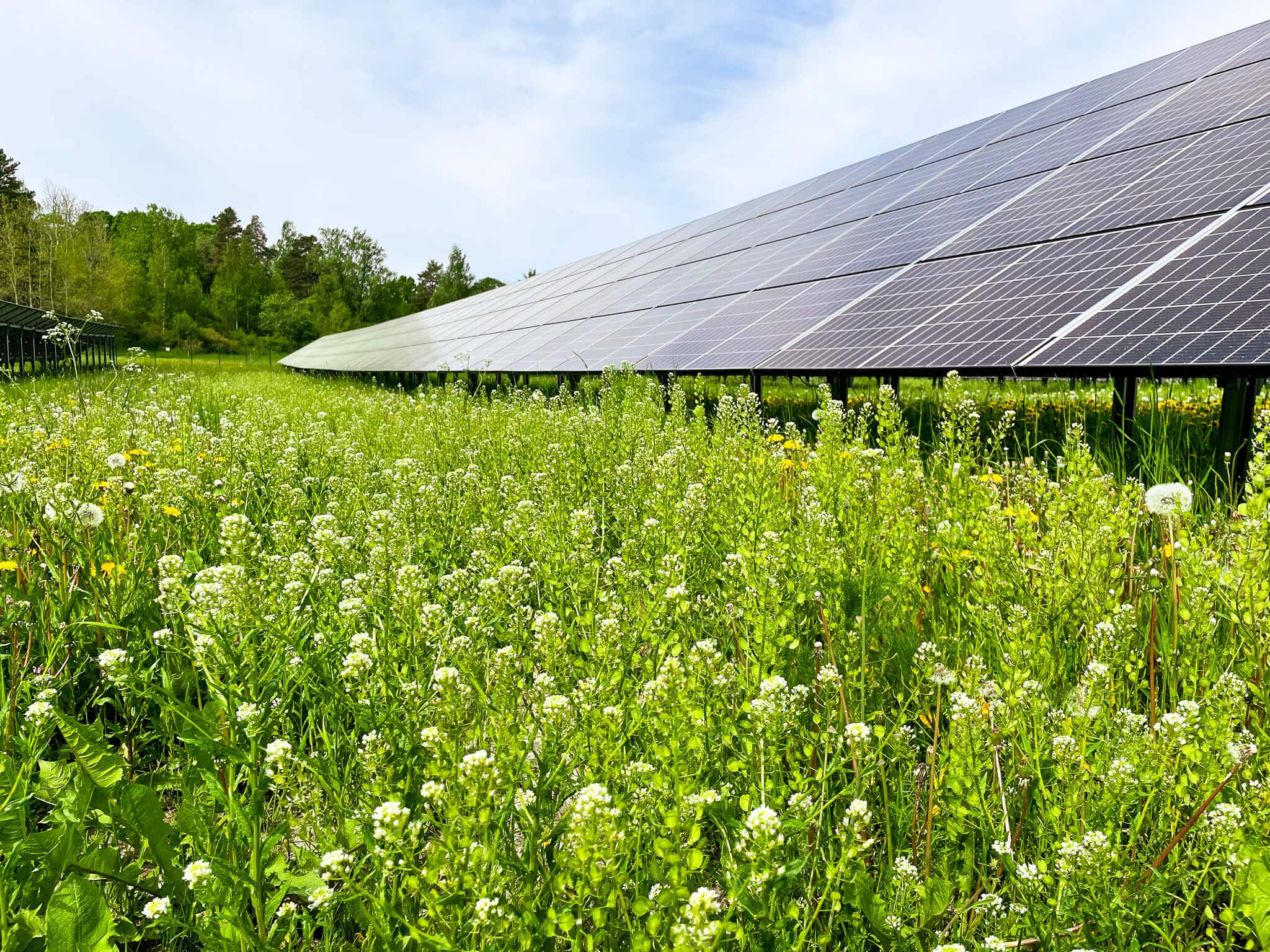Solar energy, which is the fastest and cheapest to build, has a huge potential to contribute to a more stable electricity market with depressed electricity prices. For this to happen at a rapid pace, however, larger solar parks on land need to be built, which has created a debate about how land in Sweden should be used and what is the highest priority – agriculture or solar farming?
In general, highly productive land is not used to establish solar parks, but if a park were to be established on land suitable for agriculture, it would have to involve a choice between different uses.
Eco- and Agrivoltaics allow solar farming and agriculture to interact. This could be by growing crops on the land, having animals grazing in the solar park, or working to strengthen biodiversity.
In order to give more people the opportunity to discover the possibilities of this, we are organizing a webinar on 9 December where we have invited industry colleagues from both electricity companies and the research community to give a picture of what it looks like today and what we can expect in the future.
Lina Cole, project manager for consultations and permits at Energy Engagement, will talk about the concepts of Agrivoltaics and Ekovoltaics. Explain the differences and take a look at the considerations, difficulties and opportunities of the two options.
During the webinar, you will also have the opportunity to listen to Tora Råberg, a trained horticulturalist, who also has a PhD in agronomy. She is employed as a researcher at RISE – Research Institutes of Sweden, where her work includes finding solutions for sustainable food production.
– I have long been interested in growing in agroforestry and permaculture systems to produce food, among other things. An important part of these techniques is to create food production that works in shade, semi-shade and long periods of full sunlight. This has made me interested in agrivoltaic systems and I have for some years been part of the RISE project Eko-sol in collaboration with Ecogain. This includes a handbook on ecovoltaic and agri-voltaic systems with a focus on promoting biodiversity and ecosystem services. Says Tora.
During the webinar, Tora will present some concrete opportunities and challenges of growing food between and under the panels in solar parks.

